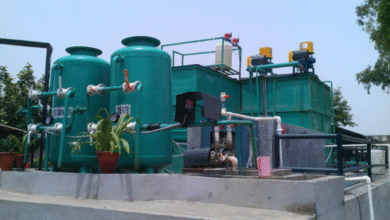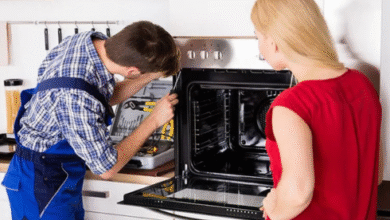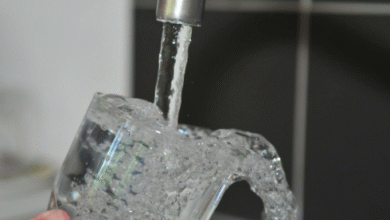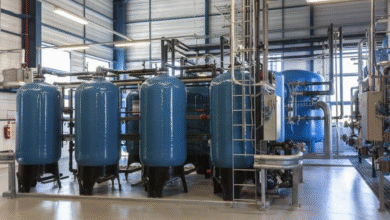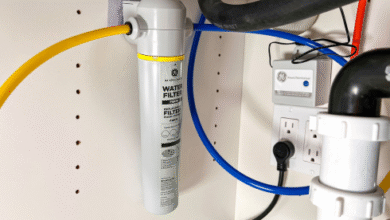Why Testing Your Water at Home Matters More Than You Think
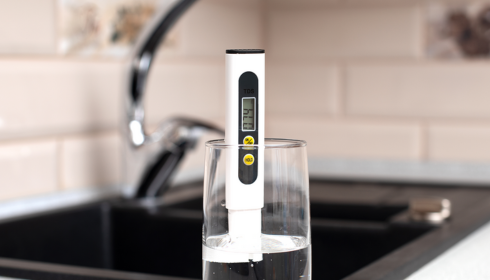
I don’t know if you’ve ever taken a sip of water, paused, and thought, “Hmm, that tastes a little… different.” Maybe a hint of metal, maybe chlorine stronger than your neighborhood pool, or maybe nothing at all but a nagging suspicion. Most of us assume that if water flows clear from the tap, it must be perfectly safe. But the truth is, water can look pristine and still carry contaminants you’d rather not invite into your body.
That’s where testing comes in. And not just testing once in a lifetime — but making it a habit, like checking the smoke alarms or scheduling a dental cleaning. It’s not glamorous, but it might be one of the smartest things you can do for your family’s health.
Why Water Testing Deserves More Attention
When people think of water issues, they imagine extreme cases — like the Flint, Michigan crisis or scary headlines about lead. But water problems don’t always announce themselves with news coverage. Many contaminants are invisible and tasteless, quietly building up in your home’s supply.
Common culprits include nitrates (from fertilizer runoff), arsenic (naturally occurring in some soils), bacteria, heavy metals, and even remnants of industrial chemicals. In small doses, some of these don’t cause immediate illness, but long-term exposure can lead to health complications.
A home water quality test gives you a clear picture of what’s actually in your glass. It’s not about paranoia; it’s about information. And information gives you choices — maybe it’s upgrading your filter, switching to bottled water for a while, or pushing your local authorities to investigate.
The Curious Case of Well Water
If you’re on city water, you usually get annual reports from the utility. But private well owners? They’re on their own. And while wells can provide fresh, mineral-rich water, they’re also vulnerable. Wells draw directly from groundwater, which means nearby farming practices, septic systems, or even natural deposits can affect what you’re drinking.
This is where the classic Google search — well water testing near me — becomes more than a random query. It’s often the first step for families realizing that what worked 20 years ago doesn’t guarantee safety today. Experts recommend annual testing for private wells, with additional checks after flooding, construction, or any noticeable change in water taste or smell.
DIY or Professional?
So, what’s better — doing a test yourself or calling in the pros? The answer depends on your comfort level and what you’re looking for.
A drinking water test kit can be ordered online or picked up at a hardware store. These kits range from super-basic strips that test for chlorine and pH, to more advanced versions that can detect lead, pesticides, and bacteria. They’re affordable, convenient, and give you results within minutes to days.
But let’s be honest: while DIY kits are great for quick peace of mind, they can’t match the accuracy of a certified laboratory test. If your initial results show something off, or if you’re relying on well water, a professional lab analysis is the gold standard. It’s like comparing a home pregnancy test to a doctor’s visit — both useful, but one carries a higher level of certainty.
The Subtle Clues Your Water May Be Sending
Not all water problems are silent. Sometimes, your senses are giving you hints, if you pay attention.
- Taste: A bitter or metallic taste could suggest iron, copper, or other metals.
- Smell: Rotten egg odor usually points to hydrogen sulfide gas.
- Look: Cloudy or discolored water isn’t just unattractive; it could be sediment, rust, or microbial activity.
The tricky part? These clues aren’t always reliable. Clear water doesn’t always equal clean water. And funky-smelling water isn’t always dangerous. That’s why testing, rather than guessing, is the safer route.
The Peace of Mind Factor
Let’s be real — most of us don’t think about water quality until something forces our hand. Maybe a neighbor finds high nitrate levels. Maybe your child develops unexplained stomach issues. Or maybe your aging pipes are a constant worry.
Testing your water removes the “what if” questions. Even if your results come back perfectly fine, the reassurance alone is worth it. And if there’s a problem, you’ll catch it early enough to act before it becomes a crisis.
Think of it this way: we get annual physicals, car inspections, and even credit checks. Yet the one thing we ingest every single day often goes unexamined. Doesn’t make much sense when you think about it.
How Often Should You Test?
This is a question that doesn’t get asked enough. For city water users, testing every 1–2 years is usually sufficient unless there’s a sudden issue like a main break or strange odor. For well owners, annual testing is non-negotiable, and more frequent checks might be necessary depending on your region’s geology and farming practices.
Life changes also matter. Adding a baby to the household? Definitely worth another round of tests since infants are more sensitive to contaminants like nitrates and lead. Renovating your plumbing system? Test again. It’s about adjusting the rhythm of testing to match your life circumstances.
Costs and Accessibility
Here’s the good news: testing doesn’t have to break the bank. Basic kits can be under $30, while lab tests typically range from $50 to a few hundred depending on what you’re screening for. When you compare that to medical bills from potential long-term exposure to contaminants, it suddenly looks like a bargain.
Many local health departments also offer testing services at discounted rates or can point you toward certified labs. If cost is a barrier, it’s worth checking for local programs, especially in agricultural or rural areas where groundwater safety is a bigger concern.
Final Thoughts: Water as a Daily Trust
We turn on the tap without thinking, expecting clean, safe water. That trust is a luxury — one that millions around the world don’t even have. The least we can do is double-check our own supply.
Testing water isn’t about paranoia, it’s about being practical. It’s a small step that pays off with clarity, peace of mind, and maybe even healthier living. So, whether it’s grabbing a quick kit for the weekend or scheduling a professional check, don’t put it off. After all, the body is mostly water — shouldn’t we make sure that water is as clean as it can be?

